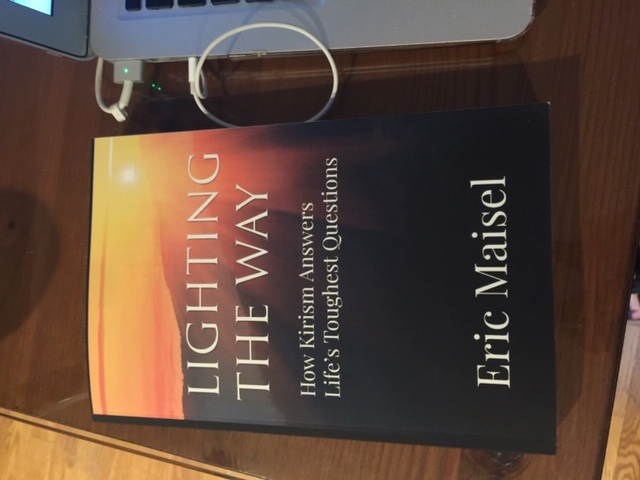This post is part of a series introducing kirism, a contemporary philosophy of life. You can learn more about kirism in Lighting the Way: How Kirism Answers Life’s Toughest Questions.
**
Among the main ideas of kirism are the following seven. They amount to seven powerful keys to living.
1. Kirists actively identify their life purposes. They decide what’s important to them. This sounds obvious enough as a sensible thing to do; but few people do it. Most people miss this opportunity at self-creation, for all sorts of reasons.
A primary reason is that they’ve been taught that life has “a purpose.” As a result, they keep hunting unsuccessfully for that singular purpose. But life has no singular purpose. It is made up of the life purpose choices that a human being champions.
2. Kirists live their life purposes. This sounds obvious enough. If you knew what your life purposes were, surely you would want to live them. But even people who have a good sense of what their life purposes are have difficulty actually living them.
This is because tasks, chores, errands, and everything else is allowed to come first; because juggling multiple life purposes is difficult; and because living our life purposes requires rather more effort than, say, napping or turning on the television.
3. Kirists organize life around their life purposes. When they wake up, kirists hear themselves say, “What are the important things?” Not, “What do I have to get done?” or “What did I leave undone?” but “What are the important things?”
These important things might include having that hard conversation with your son about his drinking, making a sharp political statement, or creating your online business. Every day, you tackle as many of these important things as you can.
4. Kirists live as if they matter. The contemporary person has powerful reasons for believing that he or she doesn’t matter. But kirists reject that just because we may be the product of an indifferent universe, we shouldn’t act as if we matter.
We matter by living our life purposes, by acting ethically, and, absurdly enough, by taking responsibility for keeping civilization afloat. This is self-obligation, ordered by no one and ratified by no one, and the primary way that we make ourselves proud.
5. Kirists live ethically. We live in a time when that stalwart phrase from the 19th century, “truth, beauty and goodness,” has been shredded by the analytical knives of linguistic philosophy. Today, it is hard to utter that phrase with a straight face.
Yet we are obliged to circle back around to innocence and to stand up for goodness, even though we know that badness is often rewarded, even though we know that our values compete and clash, and even in the absence of absolute moral principles.
6. Kirists retain their individuality. Many forces within the family and society will attempt to constrain you and limit you by bullying you, shaming you, hurling insults, invoking arbitrary rules, and employing every manner of violence and meanness.
You may be silenced and made to feel small in subtle ways or you may be told flat-out that you do not count, that you will never amount to anything, that you had better fit in and listen or else. A kirists fights against this subjugation her whole life.
7. Kirists give life a thumb’s up. Without quite realizing it, many people have given up on life. They’ve made the mental calculation that life has cheated them, that life isn’t what it’s cracked up to be, that life isn’t worth the candle.
We have to meet that sad indictment with a powerful gesture of affirmation. It is on our shoulders to give life a heart thumb’s up, even if we have been cheated and even if life isn’t all that it’s cracked up be. While we are alive, we live as fully, passionately, and ethically as we can.
You can build a rich life around these seven keys, one that will make you proud. Kirism has a lot more to offer—I hope you’ll come take a look!
**
Eric Maisel is the author of 50+ books. Read Lighting the Way and join the meaning revolution!


